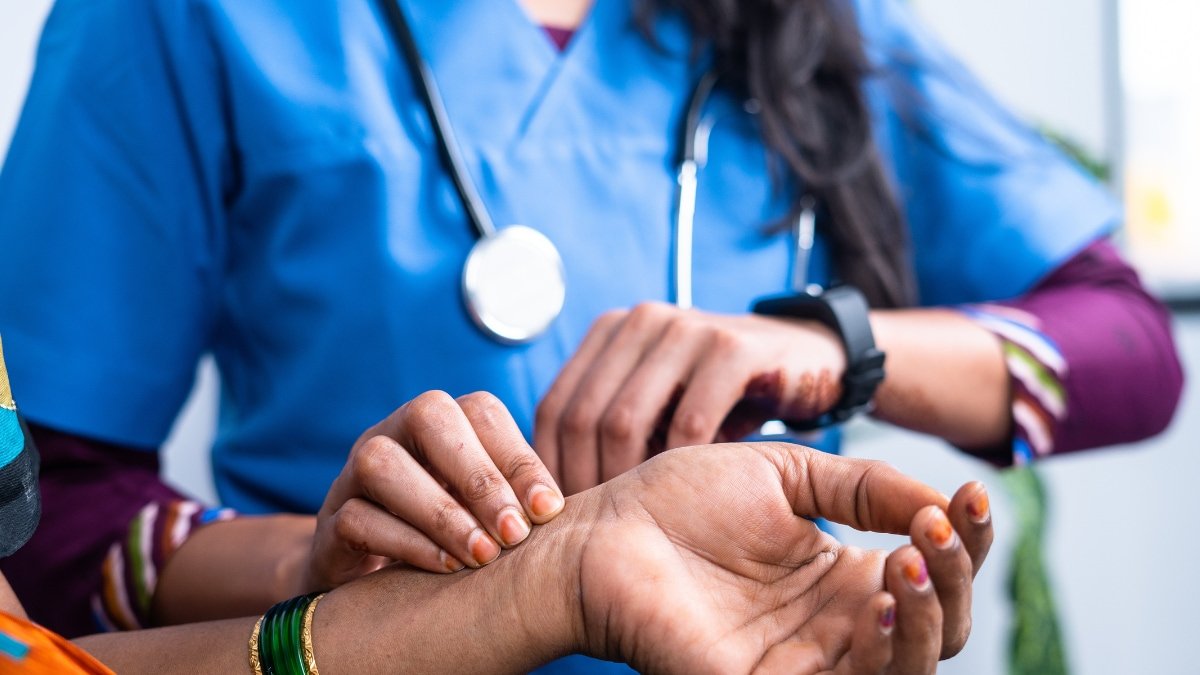A top official at Metropolis Healthcare, India’s second-largest diagnostic chain, told News18 that Indians are seeing a surge in demand for health tests, reflecting increased health awareness in the wake of the pandemic.
Metropolis Healthcare CEO Surendran Chemenkotil, in an exclusive interview with News 18, said that since Covid-19, there has been a significant increase in demand for preventive healthcare packages. “Our share of this market has grown from just 5% pre-pandemic to 16% now.”
He said one of the impacts of COVID-19 is that Indian consumers have become increasingly concerned about their health: “They are prioritizing their health and are willing to spend money to get proper medical check-ups.”
The average price of a wellness package is around Rs 2,500 to Rs 3,000 and the company claims to have grown by over 20 per cent year-on-year in this segment. “We expect this growth to be even stronger in the coming years.”
Dr Lal Path Labs is India’s largest diagnostic services provider in terms of market capitalisation, followed by Metropolis Healthcare and Vijaya Diagnostics.
Entry of health tech companies and price adjustments
The CEO of Bombay Stock Exchange (BSE)-listed Metropolis said many health tech companies have entered the industry and are offering “very deep discounts”.
“These companies were putting real pressure on the industry when it came to pricing,” said Chemenkotil, who was managing director and CEO of Nigerian telecom giant Airtel before joining Metropolis.
“All of these companies were offering deep discounts, online services and home visits. They were seeing strong revenue growth and good EBITDA margins (earnings before interest, taxes, depreciation and amortization) during the pandemic. So everyone was thinking this was a bright spot with few barriers to entry.”
“Not only health tech, but some hospitals also wanted to enter the diagnostics industry and establish their own diagnostic chains.”
Additionally, he said, a number of pharmaceutical companies have also entered the diagnostics industry (MannKind Pharma’s Paskind Labs and Lupin’s Lupin Diagnostics are examples, though he declined to name them).
“The diagnostics industry was very competitive. Everyone was competing on price,” Kemenkotil said.
However, he said healthtech companies are now realising that they can only attract health-related customers: “When someone falls ill, they don’t rely on various offline and online services. Instead, they consult a doctor and visit a recommended diagnostic centre. This is where Metropolis really excels.”
He said these companies now realise that the prices they were offering were not sustainable, “which is why health tech companies have all increased their prices by 50-60% in the last year.”
“Investors started having doubts so they raised prices by 50-60 percent,” Kemenkotil claimed, adding that Metropolis had also revised its prices for the first time in two years.
Expansion beyond Tier III of cards
The chain aims to be present in at least the top 1,000 towns in India over the next two years, with 24 new labs, over 500 collection centres and a presence in over 600 towns. “This will be mostly tier 2, tier 3 and sometimes beyond tier 3,” he said.
The chain is already present in most of the tier 1 cities and is looking to expand further into tier 2 and tier 3. “After that we may move into smaller areas in tier 4 and cover at least all the district headquarters. India has 650-odd districts and that is our target.”
The company is also actively exploring merger and acquisition opportunities and is already in negotiations for multiple locations.
The future lies in specialized testing and artificial intelligence
The company is looking to strengthen its specialty portfolio, which includes genetics, molecular biology and next-generation sequencing technologies. “Next-generation sequencing is viable across disciplines including oncology, neurology and nephrology,” the executive said, adding that the company is working to further expand its specialty portfolio, which currently accounts for around 35% of the company’s revenue.
He also said that the role of artificial intelligence in diagnosis is now very important.
“AI can be used to predict outcomes much better than human intervention can. Machine learning can also take a lot of clinical records and patient data and predict disease before it happens.”
Top Videos
Show all
Congress Party forms manifesto committee for Jammu and Kashmir elections | English News | News18
“Rahul Gandhi Should Seek Therapy Immediately”: Kangana Ranaut | English News
Donald Trump given partial immunity from prosecution for actions taken while in office: US Supreme Court
Will Jordan Bardella be Francis’ next prime minister?
Rahul Gandhi Posts on Social Media | Rahul Gandhi Slams Modi Government | English News | News18
“Companies that don’t embrace AI will be left behind. We are committed to making the right investments in AI,” said Kemenkotil, who predicted the rise of “remote diagnostics” in the industry over the next few years.
“Telediagnosis will also be an important factor going forward. If you want to consult a doctor in another part of the world, you can provide your sample here (in an Indian city) and the doctor will have easy access to the diagnostic report.”
Edited by: Nithya Thirumalai
First revealed: July 2, 2024 9:32 AM

